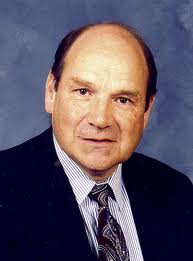Facing a libel suit for an article slandering University of Victoria Professor Andrew Weaver as someone who “knew very little about climate change” and is therefore unfit to teach, Tim Ball has told the New York Times, “I stand by the story.”
The NYT also wrote: “The apology and retraction of the story by Canada Free Press ‘hung me out to dry,’ Dr. Ball added, saying he was in the process of hiring a lawyer to fight the lawsuit.”
Ball admits that he was incorrect in also saying that Weaver was “abandoning the sinking ship” of the Intergovernmental Panel on Climate Change (Weaver is, in fact, a lead author in the upcoming Fifth Assessment Report). But he dismisses this as “one small mistake.”
Ball’s “small mistake” may be in thinking that he can continue to say any darn thing he likes, about climate change or the people involved in legitimate research, and never have to account for its accuracy. Not for much longer ….
Subscribe to our newsletter
Stay up to date with DeSmog news and alerts







